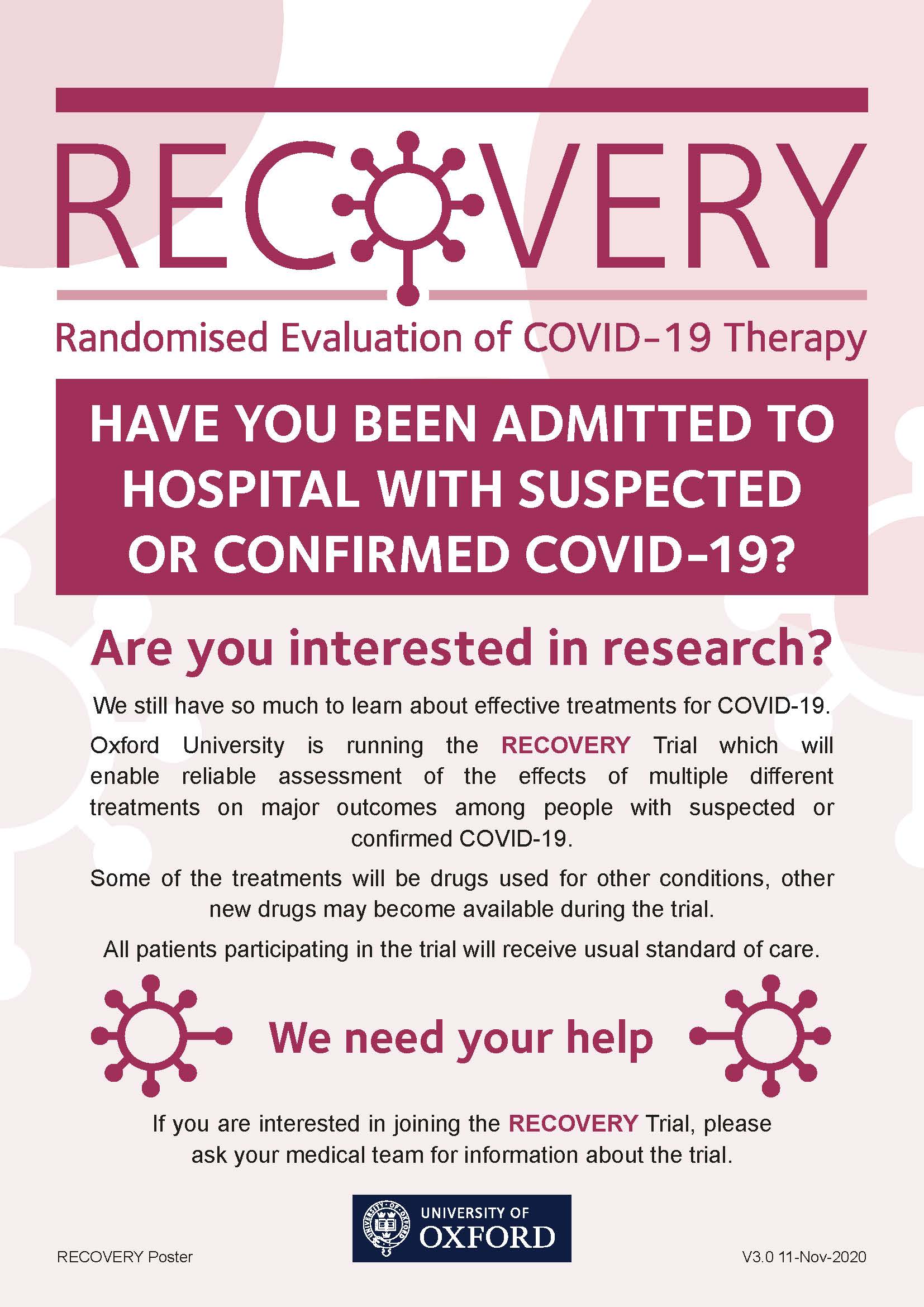What happens next if I agree to be included in this study?
If you decide to join, you will be asked to sign the consent form. Next, brief details identifying you and answering a few questions about your health and medical conditions will be entered into a computer. If you are a woman of child-bearing potential, you will have a pregnancy test. If you might receive sotrovimab a blood sample will be sent to a central laboratory for measurement of coronavirus and immune responses against it, and a nasal swab may be collected now and twice more in the next 5 days. If you have ‘flu a nasal swab may be collected now and once more in 5 days. The results of all these tests will not be available to your medical team because they are for research and are not validated for clinical application, and the samples will be destroyed once testing is complete. If you are discharged before day 5 you may be asked if you would be willing to take a swab sample at home and post it back (free of charge). This is optional.
The computer will then allocate you at random (like rolling a dice) to one (or sometimes more) of the possible treatment options, depending on what illness you have and what your doctors think is suitable. In all cases this will include the usual standard of care for your hospital and it may also include additional treatment, which might be given by mouth or injection. Neither you nor your doctors can choose which of these treatments you will be allocated. Additional information about your health will be recorded and entered into the study computer. No additional visits will be required after you leave the hospital.
Information about your health (before, during, and after the study) may be obtained from medical records or databases (including NHS Digital, Public Health England, other equivalent bodies, and genetic or other research databases if you have provided samples to them) so that the study team can get more detailed or longer term information about the effects of the study treatments on your health for up to 10 years after your discharge. For pregnant women we will collect your and your baby’s outcome from the UK Obstetric Surveillance System. We may write to you to tell you about the trial periodically, but you will be able to opt-out of these communications if you prefer. Your GP may be informed of any issues relevant to your participation in the trial.


